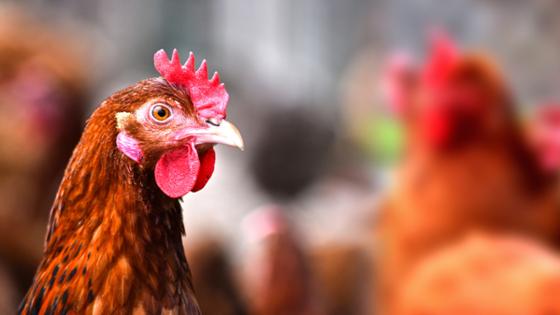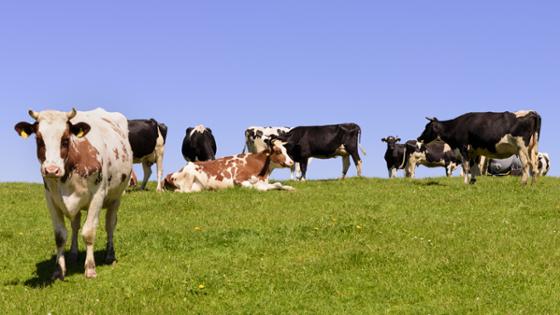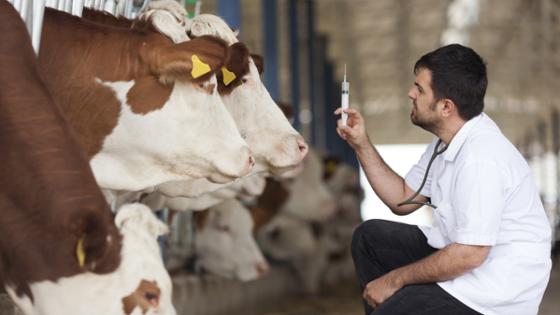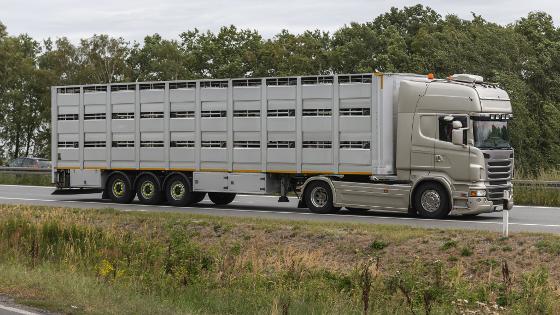Germany free again from foot-and-mouth disease (FMD), several cases in Hungary and Slovakia
On 10 January 2025, a case of foot-and-mouth disease in water buffaloes was detected in the district of Märkisch-Oderland in the federal state of Brandenburg. No further cases occurred. As a confirmation of the successful containment and the disease control and monitoring measures that have been carried out, the World Organisation for Animal Health (WOAH) reinstated the status of "free from FMD without vaccination" for the whole of Germany on 14 April 2025. In early March, foot-and-mouth disease was detected in northwest Hungary. Further cases have now been reported in the vicinity, both in Hungary and in the bordering Slovak Republic.
Current situation
The epidemiological situation in Germany
The case of FMD detected in Brandenburg in early January was the first outbreak in Germany since 1988. In response, the competent authority in Brandenburg immediately established restricted zones from which it was inter alia generally prohibited to transport animals and animal products. The livestock inside the restricted zones and identified contact farms were investigated to determine the cause and extent of the infection. Additionally, the federal states of Brandenburg and Berlin imposed a temporary standstill for cloven-hoofed animals – that is, a blanket ban on moving animals susceptible to FMD. No further cases were detected despite extensive sampling and examinations.
Alongside these measures, the national task force on animal disease control began meeting the day the outbreak was detected. The Federal Ministry of Food and Agriculture (BMEL) also convened the central animal disease crisis team and consulted with the German federal states (Länder) and the EU on the further course of action. Moreover, discussions continue to take place with agricultural and food industry associations.
In January, several non-EU countries initially stopped the import of certain meat and milk products from Germany. With a lot of committed work, the BMEL was able to quickly open markets again. For example, China and Malaysia, which are important for milk and milk products. And also Great Britain, which is a very important export market for animals and animal products.
The World Organisation for Animal Health, WOAH, reinstated the status of "free from foot-and-mouth disease (FMD) without vaccination" on 14 April 2025 upon request from Germany. The rapid confirmation of the important WOAH freedom status was made possible because Germany submitted two comprehensive dossiers to WOAH. They were drawn up at the BMEL – in comprehensive cooperation between the BMEL and the affected federal states of Brandenburg and Berlin, the FLI and an expert sent by the EU. Official recognition of WOAH animal health status is of great importance to international trade.
The epidemiological situation in Hungary and the Slovak Republic
Foot-and-mouth disease was detected on a cattle farm in northwest Hungary in early March. This is the first outbreak in Hungary since 1973. Further cases have now been reported in the vicinity, both in Hungary and in the bordering Slovak Republic. There is no evidence whatsoever suggesting that the FMD outbreak in Brandenburg in early January 2025 and the FMD outbreak in Hungary in early March 2025 are connected. The BMEL is in contact with the affected countries. Germany is providing doses of vaccine in order to prevent the spread of the virus.
Precautionary biosecurity measures and constant attention are key for the holdings in Germany in order to prevent FMD introduction and a renewed outbreak of the disease.
The key facts
- FMD is a highly contagious, but usually non-fatal, viral infection of cloven-hoofed animals which may, however, also affect certain other species. The disease is spread across the world.
- FMD is a vesicular disease of the claws, the oral mucosa and the udder that cannot be distinguished from other vesicular diseases in clinical terms. Laboratory diagnostics are therefore decisive to clarify suspect cases.
- The virus can easily be transmitted by animate or inanimate vectors, especially by animals during the incubation period or by clinically affected animals and their products. But it can also spread over long distances by air.
- Animals that have recovered from the disease can remain carriers of the infectious FMD virus over a long period of time.
- FMD is harmless to humans. Under today’s hygiene conditions, pasteurised milk or milk products pose no risk to consumer health. The experiences gained with FMD outbreaks in the past support this assessment. Individual infections in humans who had direct and intensive contact with infected cloven-hoofed animals or with the FMD virus itself are described in technical literature. In these rare cases, the illnesses took a benign course.
FMD is a disease listed with the WOAH. The disease has the potential for rapid spreading, irrespective of national borders. It can have severe animal health and socio-economic effects and can result in heavy economic losses due to restrictions in the international trade in animals and animal products.
Measures in case of an FMD outbreak
In Germany, the federal states (or Länder) are responsible for animal disease control. The authorities competent pursuant to Land law carry out the animal disease control measures. The Friedrich Loeffler Institute (FLI) supports the epidemiological investigations. In the event of an FMD outbreak, restricted zones are established around the affected holdings. These restricted zones are subject to a general movement ban on susceptible animals and their products. Susceptible animals and their products may still be moved on the basis of officially granted exemptions.
Further information provided by the BMEL (partly in German)
EU information & measures
Expert information
- Friedrich-Loeffler-Institut (FLI): Risk Assessment to evaluate the infectivity of pasteurised milk for animals susceptible to FMD
- Friedrich-Loeffler-Institut (FLI): FAQ Vaccination against footand-mouth disease (FMD)
- Information from the Friedrich-Loeffler-Institut (FLI) on foot-and-mouth disease
- Information from the Institute of Diagnostic Virology (IVD) on foot-and-mouth disease
General legal provisions (partly in German)
- Regulation (EU) 2016/429 of the European Parliament and of the Council of 9 March 2016 on transmissible animal diseases and amending and repealing certain acts in the area of animal health (‘Animal Health Law’)
- Commission Delegated Regulation (EU) 2020/687 of 17 December 2019 supplementing Regulation (EU) 2016/429 of the European Parliament and the Council, as regards rules for the prevention and control of certain listed diseases
- Commission Delegated Regulation (EU) 2020/688 of 17 December 2019 supplementing Regulation (EU) 2016/429 of the European Parliament and of the Council, as regards animal health requirements for movements within the Union of terrestrial animals and hatching eggs
- Commission Delegated Regulation (EU) 2020/689 of 17 December 2019 supplementing Regulation (EU) 2016/429 of the European Parliament and of the Council as regards rules for surveillance, eradication programmes, and disease-free status for certain listed and emerging diseases
- Verordnung zum Schutz gegen die Maul- und Klauenseuche (MKS-Verordnung)







